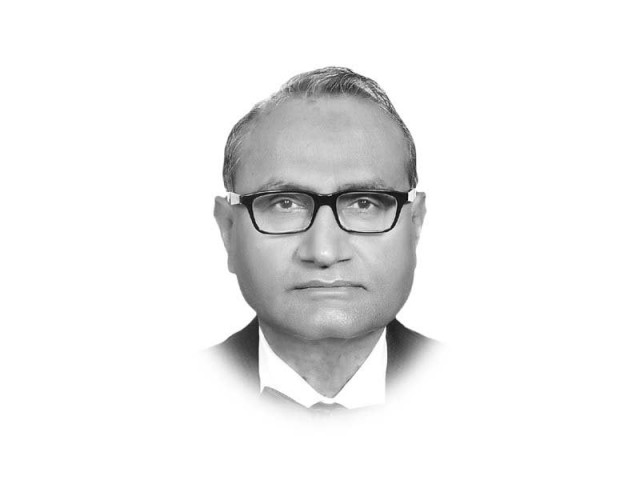ZIM no more
Most stories were rewritten by him to add some punch, and the most powerful were written by him pseudonymously

The writer is a senior economist.
He can be contacted at pervez.tahir@tribune.com.pk
Simple in manners, he never bothered about what he wore and how he looked. Moody, cricket-mad and a connoisseur of drinks, ZIM had no particular views on politics. He was comfortable with all, but was part of none. This is not to say he was in Churchill’s words, “a sheep in sheep’s clothing”. He did fondly address his lovely wife as “bakri” (goat), but himself defied the description whenever things turned to his disliking. He threw away the tea cup he was holding and walked out of the office when Khawaja Asif, his editor, censured him in Muhammad Idris’ office. He did not return until the master of reconciliation, AT Chaudhri, disarmed him with his charms. On another occasion, Safdar Mir got annoyed with ZIM when he entered his beat to describe Sarmad Sehbai’s first Punjabi play as a “sizzler”. It was also the first Punjabi play staged by the Government College Dramatic Club, with Madeeha Gauhar debuting in it. Muhammad Idris’ office was our “gup shup ka adda” when I worked in Pakistan Times as the economic correspondent. Tulli Apa, Munno Bhai from Imroze and Dildar Pervaiz Bhatti would also join sometimes. Idris’ famous column on Bhutto’s demonetisation, “Cash Scare at Bank Square” was actually a joint effort, with ZIM speaking one sentence and Idris typing the next one.
The greatest fun was at the office of the weekly, Punjab Punch. It was one stool and a broken bench in the basement of Muzaffar Qadir’s Pacall Printers. A “gang of four” — Hussain Naqi, ZIM, Masoodullah Khan (our Long John Silver) and Kadija Gauhar were the main drivers, with this scribe, fresh from Government College as “cub” editor. The arrangement was necessary as all were full timers elsewhere. Hussain Naqi, of course, stuck his neck as publisher. This was the place where ZIM unwound himself from the suffocation of the newsroom of Pakistan Times. Most stories were rewritten by him to add some punch, and the most powerful were written by him pseudonymously. He was too shy to own up to anything. With all their qualities, the gang was a lazy lot. Hussain Naqi had to slave-drive them. So much so that when Naqi was arrested, ZIM was dancing to the tune of “Freedom at Last”. The work went on late in the night. At first such night, I was worried that no rickshaw would be available to go home. ZIM and I came out and a rickshaw stopped by asking him to ride. He dropped me before heading for his Model Town residence, whispering in my ear: “You know some rickshaw walas recognise me because my father was in the police.”
Published in The Express Tribune, December 6th, 2019.
Like Opinion & Editorial on Facebook, follow @ETOpEd on Twitter to receive all updates on all our daily pieces.















COMMENTS
Comments are moderated and generally will be posted if they are on-topic and not abusive.
For more information, please see our Comments FAQ